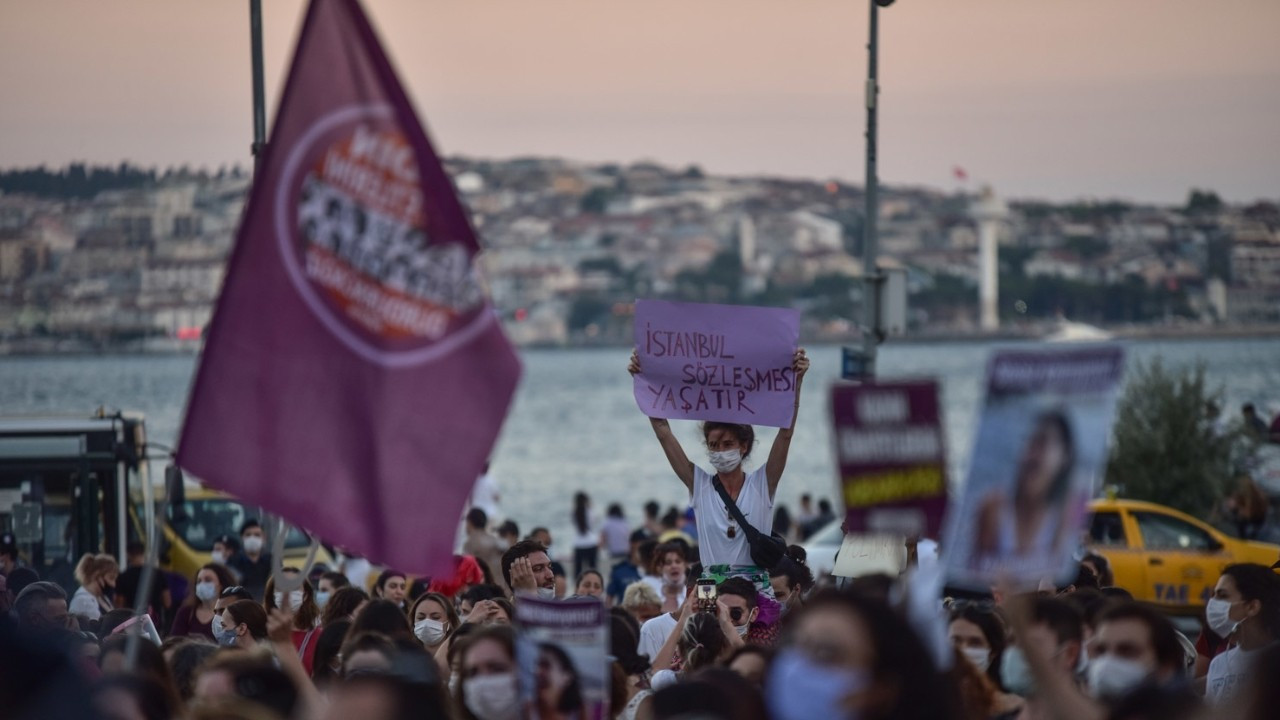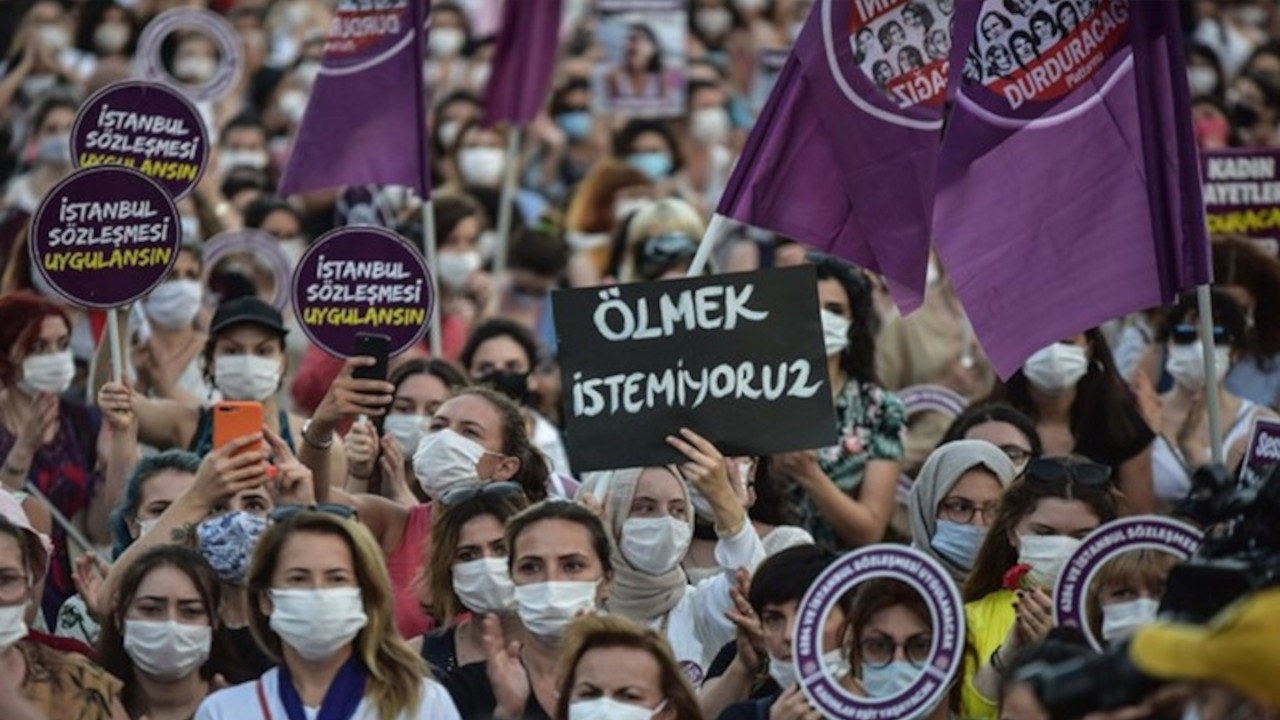Top Turkish court finds withdrawal from Istanbul Convention 'lawful'
Turkey’s Council of State has found President Erdoğan’s withdrawal from the Istanbul Convention “lawful.” Women organizations were saying the presidential decree that pulled the country from the Istanbul Convention was “unlawful,” as the convention was approved by the consent of all parties in parliament in 2011 and that the Constitution does not give the President the power to annul it.
Duvar English
The Council of State (Danıştay), Turkey's highest administrative body, found President Recep Tayyip Erdoğan’s withdrawal from the Istanbul Convention “lawful.”
Political parties and women organizations filed lawsuits against the presidential decree that pulled the country in March 2021 out of the Council of Europe’s Convention on Preventing and Combating Violence against Women and Domestic Violence, also known as the Istanbul Convention.
In their petition, they said that the convention was approved by the consent of all parties in parliament in 2011 and that the Constitution alone does not give the President the power to annul it.
Previously, 10th Chamber of the Council of State rejected the appeal demanding the annulment of the presidential decree in a 3-2 vote.
Council of State Administrative Litigation Chambers ratified the Chamber’s decision. The plaintiffs now can apply to the Constitutional Court (AYM) regarding the issue.
Iconic chairwoman of the Turkish Federation of Women’s Associations (TKDF), Canan Güllü, criticized the decision and said if the AYM decides the same, they will apply to the European Court of Human Rights (ECHR).
“Withdrawing from the Convention is unlawful and this decision is the proof of one-man rule,” Güllü stated, according to reporting by ANKA News Agency on Jan. 2.
President Recep Tayyip Erdoğan signed the presidential decree on March 20, 2021, quitting the landmark treaty aimed at protecting women from violence. On July 1, 2021, the country formally left the convention, triggering massive protests and anger from women’s rights groups, who believed the agreement was essential.
Turkey, the first country to ratify the treaty in 2011, suffers from high rates of femicide.

 Turkey's top administrative court rejects appeal against exit from Istanbul ConventionWomen
Turkey's top administrative court rejects appeal against exit from Istanbul ConventionWomen Council of State prosecutor says only parliament can quit Istanbul ConventionHuman Rights
Council of State prosecutor says only parliament can quit Istanbul ConventionHuman Rights